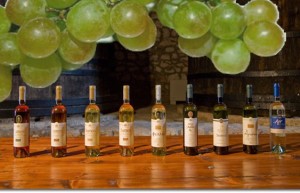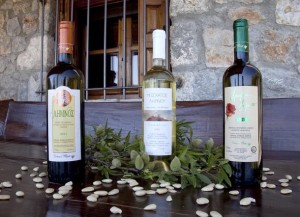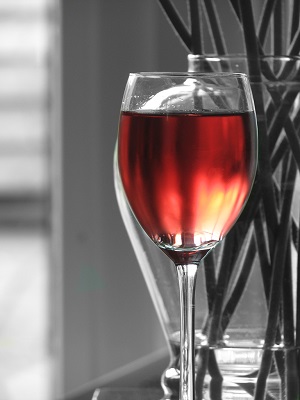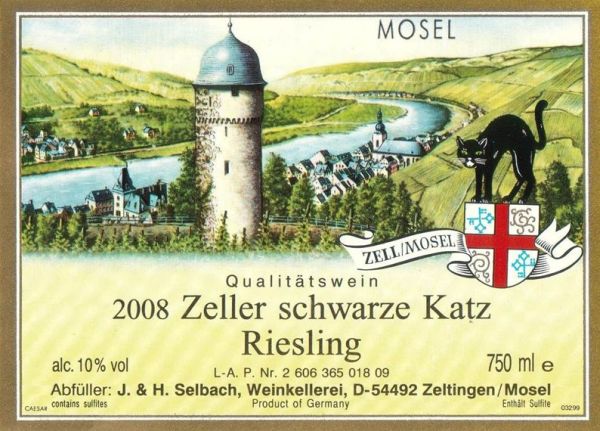Two of the most famous Greek wines have been produced on the North Aegean island of Samos and Limnos since antiquity.
Samos has one of the best-known vineyard areas in Greece. The 3700 acre (1500 hectare) area of cultivation produces one of the best Muscat wines in the world. The vineyards which are frequently terraced and often only two rows wide, reach an altitude of up to 2600 feet (800 metres) and produce grapes with very different degrees of maturity. The appellation “Samos Muscat” may only be pressed from the variety “Muscat blanc à petits grains” (Moscato Samou), which thrives in 98 percent of the cultivated area.
Several variations of “Samos Muscat” are sold. “Samos Doux” is a fortified or dessert wine, while “Samos Vin Doux Naturel” is a naturally sweet wine, whose fermentation is halted by the addition of ethyl alcohol, so that the wine keeps part of its natural sugar and is guaranteed not to turn to vinegar. Some good white wines are also made on Samos from Muscatel grapes.

The wine cooperative Samos (EOSS), founded in 1934, which all winegrowers on Samos belong to, is probably the best organised cooperative in Greece and has the absolute monopoly for the appellation. Since then, a large French customer (La Martinique) has bought two-thirds of their production each year: indeed, France was already a major purchaser under Louis XVI. In Germany there was great interest in sweet Greek wines some 40 years ago, as they were used as the basis for a medicinal syrup for the circulation. Even the Roman Catholic Church obtained its communion wine exclusively from Samos. Today, communion wine from Samos is only exported to Austria, Belgium and Switzerland. Some is made in Metaxa and sold to local restaurateurs. Sweet Samos is best drunk as an aperitif or as an accompaniment to spicy cheeses, nuts, and fruit salad.
Limnos, the most northerly island, is the home of the Limnio grape, which has now conquered the mainland as well, and there produces full-bodied wines with distinctive acidity. This variety, which Artistole called lemnia, is a rather rustic, unconventional variety, with spicy nuances of sage and bay. The island’s appellation controlée wines are pressed from Moscato grapes. “Limnos Muscat” is an outstandingly delicate fortified wine, whereas very little of the dry version is exported. Almost all is drunk on the island.












